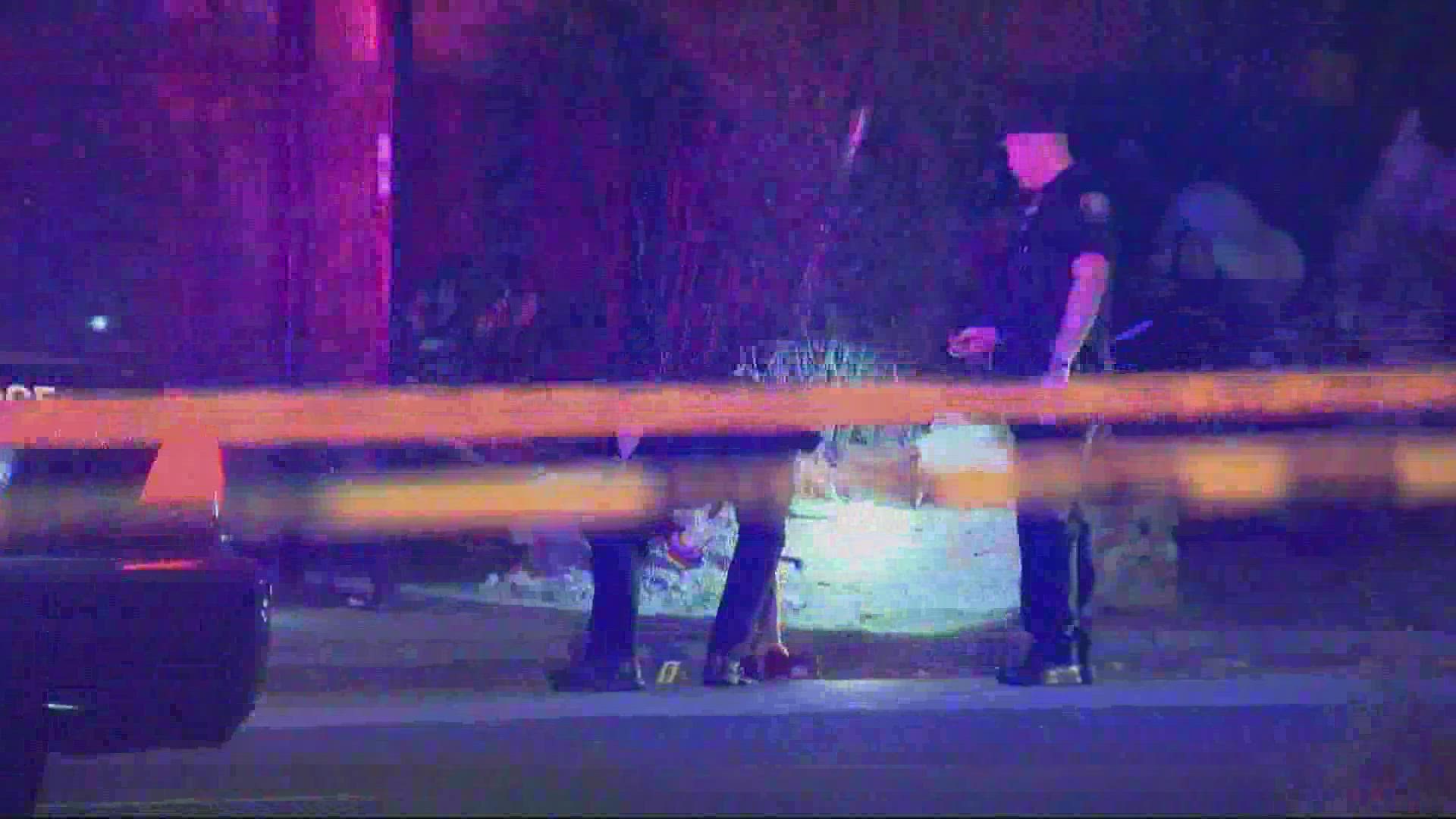PORTLAND, Ore. — Editor's note: The video in the media player at the top of this article is from June 28 and discusses Safer Summer PDX
Mayor Ted Wheeler announced an emergency declaration during a news conference Thursday afternoon in response to a newly updated report released last week about the continued rising gun violence in Portland.
Wheeler was joined by representatives from the Portland Police Bureau and the Community Safety Division, including the Safer Summer PDX team and the Office of Violence Prevention.
On Saturday, Wheeler's office released the report detailing Portland's rise in shootings and homicides over the past three years, finding that the city compared unfavorably even when stacked up against similarly sized metropolitan areas around the country.
The analysis was conducted by the firm California Partnership for Safe Communities (CPSC), examining both homicides and non-fatal shootings in Portland from 2019 through 2021.
“This report confirms the unfortunate reality of what we already knew – that gun violence is on the rise in Portland and that it is being driven by a very small percentage of our population,” Wheeler said in a statement. “I look forward to incorporating this important data and the recommendations from California Partnership into our future efforts to address gun violence, including Safer Summer PDX and beyond."
Over those three years, the analysis found, Portland saw a 144% increase in its homicide count and a 241% increase in non-fatal shootings that resulted in injury.
When compared relative to five "peer comparison cities" — Minneapolis, Atlanta, San Francisco, Denver and Nashville — the report found that Portland had the largest increase in its homicide rate, at 207%. Minneapolis was next highest at 104%, and the third highest was Atlanta at 54%.
By the report's data, 2019 marked a clear dividing line for when this spike began. Before that year, Portland continually remained below a 20-year average of 28 homicides per year — 2004 marking the only prior exception, when there were 29 homicides. But Portland shot up to 36 homicides in 2019, 57 in 2020 and 88 in 2021.
Whereas before 2019 Portland largely remained between the Oregon and U.S. averages for homicide rate per 100,000 people — with Oregon's rate trending lower, and the national rate higher — it shot far above the nationwide rate by 2020.
The number of nonfatal shootings have followed a linear upward progression, adding roughly 100 additional instances each year since 2019. The surge in homicides starting in 2019 were also somewhat more likely to have been caused by guns than in prior years.
The report found that identified victims and suspects in Portland's homicides and shootings disproportionately tended to be African American, at 47.2%. Caucasians accounted for 36.5%. The overwhelmingly majority of both groups were men between the ages of 18 and 34.
Despite the increased frequency, the report found no statistically significant demographic differences in shooting victims and suspects within the last three years compared to a period starting in 2015 — meaning the race, sex and age of people involved in shootings has essentially remained the same.
A shift in criminal history among victims and suspects was statistically significant, however. Victims and suspects between 2019 and 2021 were about 61% more likely to have been on probation or another kind of post-prison supervision before than those between 2015 and 2019 — but they were actually somewhat less likely to be on active post-prison supervision.
CPSC noted that about 70% of known victims and suspects in homicides and shootings had "prior criminal justice system involvement," and this metric seems to have involved criminal offenses of any kind. The three highest categories of these offenses on average were not violent, but instead involved property crime, drug offenses and "disorder offenses."
About 58% of victims and suspects had a prior felony conviction, the report found. Almost half of known victims or suspects between January of 2019 and June of 2021 were known to be affiliated with a gang or similar group.
"Homicides in Portland fall into many categories of circumstances, but the largest are ongoing personal disputes and instant disputes," CPSC said. "This is closely followed by violence resulting from group/gang members engaged in ongoing group-related conflicts."
The report found that there were about 227 people tied to these "groups" directly involved in a homicide or shooting between 2019 and 2021, "indicating that a very small and very high risk population is driving a significant portion of the gun violence in Portland."
The Portland Police Bureau reported knowing of about 30 gangs or groups operating as of 2021, with just a third of those groups accounting for the lion's share of homicides and shootings.
The report's recommendations focused around something that may be a sore spot for Portland — namely, it advised that police focus their interdiction efforts on gangs. Portland shut down its Gun Violence Reduction Team, a gang-focused unit, after a growing backlash in 2020 against the team's interactions with Portland's Black community. It's since been replaced by the Focused Intervention Team and Enhanced Community Safety Team.
"When implementing strategies to reduce gun violence, utilize available data to focus on the largest known driver of gun violence," CPSC said in its recommendations. "If the goal of public safety strategies is to reduce gun violence in the near term, invest in and focus on the people that are at highest risk now."

